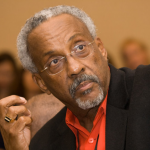In the 21st century, to have a strong, skilled, and stable team of followers, leaders must let go of the old dominant mindset and adopt a new one.
BY MICHAEL F. BROOM, Ph.D. | CEO, Center for Human Systems
There is no such thing as a leader without followers. Recruiting and keeping skilled and strong followers is a must. Historically, the context of those two tasks included an employer’s market, where employers wielded more power than employees.
In the first half of the 20th century, there were two World Wars and the Great Depression. They generated the need for stability, safety, and security that obedience to authority and steady employment offered. For many leaders, this meant that their needs were much more important than their people’s.
In the 21st century, that has changed. The “Great Resignation” is just one sign that people have choices about who they follow and will exercise those choices to a degree that has never existed before.
People want a sense of being appreciated and valued if they are to lend their energy and skills to your endeavors. And they will vote with their feet to get it.
In the 21st century, to have a strong, skilled, and stable team of followers, leaders must let go of the old dominant mindset and adopt a new one. Here are three leadership mindsets that will generate strong and loyal followers:
Be the keeper and communicator of the vision
I have worked with many leaders who are clear about their vision for their organization, but their people are not. But being the only person who has a clear picture will not work. The best way to communicate your vision is to include it in everyday discussions about the organization’s work.
Have a working strategic plan, not one that just sits in a drawer. Reviewing it at least monthly with your people ensures that the vision and its related strategies are still in mind, clear and on track. Using a strategic plan creates a feedback loop that can point out course corrections as needed.
It also can support establishing and maintaining accountability. By accountability, we mean using clear and meaningful consequences to reward those who maintain focus and produce good results and penalize those who consistently don’t.
Eliminating distractions is another part of communicating the vision and staying true to it. Team dysfunctions, such as power struggles and other conflicts, are major distractions from the work of moving toward the vision.
Other distractions include “shiny objects” of the latest managerial fads or the attractive short-term opportunities that come by but are not likely to contribute to the vision.
Finally, leaders, as keepers of the vision, must practice what they preach. They must walk their talk. Leaders are role models for their followers. If you stay focused, your people will.
Assure the quality of the journey
Leaders can be prone to being so focused on moving toward their vision that they lose sight of the quality of the journey. The journey is where we all live and breathe. The vision is someplace to get to. The journey is where we are.
People of the 21st century want a high-quality journey during which they feel valued and appreciated. Value them for their importance in accomplishing the organization’s vision, and value them as the human beings they are.
Leaders who listen well to their people and openly include their thoughts in decision-making clearly value their workers. Leaders who are compassionate about their people’s difficulties and celebrate their human success clearly value their people.
Critical to the quality of the journey is how productive and engaged people are working together. Dysfunctional teams are not only significant distractions, but they can also drive people away.
People want to be part of teams with minimal dysfunction. Teams that are convivial, supportive, psychologically safe and conflict-competent are the gold standard but are sometimes challenging to attain.
Pay attention to these issues with feedback loops that are frequent, such as loops about financial and operational matters. Nothing maintains morale like healthy teams.
Make the journey one that is engaging and meaningful. It is as important as the vision, if not more. In fact, if your people do not find the journey worthwhile, they will abandon it, and you, no matter how enticing or essential it is to you.
Be humble while being first among equals
“First among equals” is a person who is in a leadership role but is clear that they are no better, no more important than anyone else.
Ironically, being human can make it difficult for leaders to be so humble. It is all too easy for us to attach our egos, our sense of identity and self-esteem to being a leader. Doing so can generate a sense of self-aggrandizement or an overwhelming sense of unworthiness, neither of which is useful.
Here are some ways a leader can be first among equals. Each is a part of earning the respect of your people.
- Be curious; you don’t know everything: Your people have ideas you are not likely to dream of, no matter how much experience you have. Seek their thoughts and ideas and include them in your deliberation.
- Be a facilitator, rarely command: Instead of dictating terms, facilitate discussions, mediate conflicts, and ensure everyone’s voice is heard.
- Build consensus: Foster agreement among your people by remembering that consensus is not necessarily unanimous. Ask outliers if they will support a decision even if they don’t think it’s the best idea since sliced bread.
- Encourage and empower: Recognize the strengths of each team member and empower them to take charge in their areas of expertise.
- Admit mistakes: When mistakes happen (and they will), admit them. This builds trust and demonstrates humility.
- Consistent fairness: Treat all team members with equal respect and fairness. Favoritism, perceived or actual, erodes trust quickly.
Each of the three mindsets — being the keeper of the vision, ensuring the quality of the journey and being humble while being first among equals — supports the others. When practiced consistently, you will find yourself with a strong and vital team ready and willing to follow your lead toward making your visions a reality.
 Michael Broom is an organizational psychologist with 45 years of experience with various people and organizations. Formerly of Johns Hopkins University, he is a Lifetime Achievement Award honoree of the OD Network and the author of “The Infinite Organization” and “Power, The Infinite Game.”
Michael Broom is an organizational psychologist with 45 years of experience with various people and organizations. Formerly of Johns Hopkins University, he is a Lifetime Achievement Award honoree of the OD Network and the author of “The Infinite Organization” and “Power, The Infinite Game.”
Contact Dr. Broom for a free hour consultation at chumans.com. You’ll be surprised at the difference a single hour can make! Email him at michael@chumans.com for more info.








